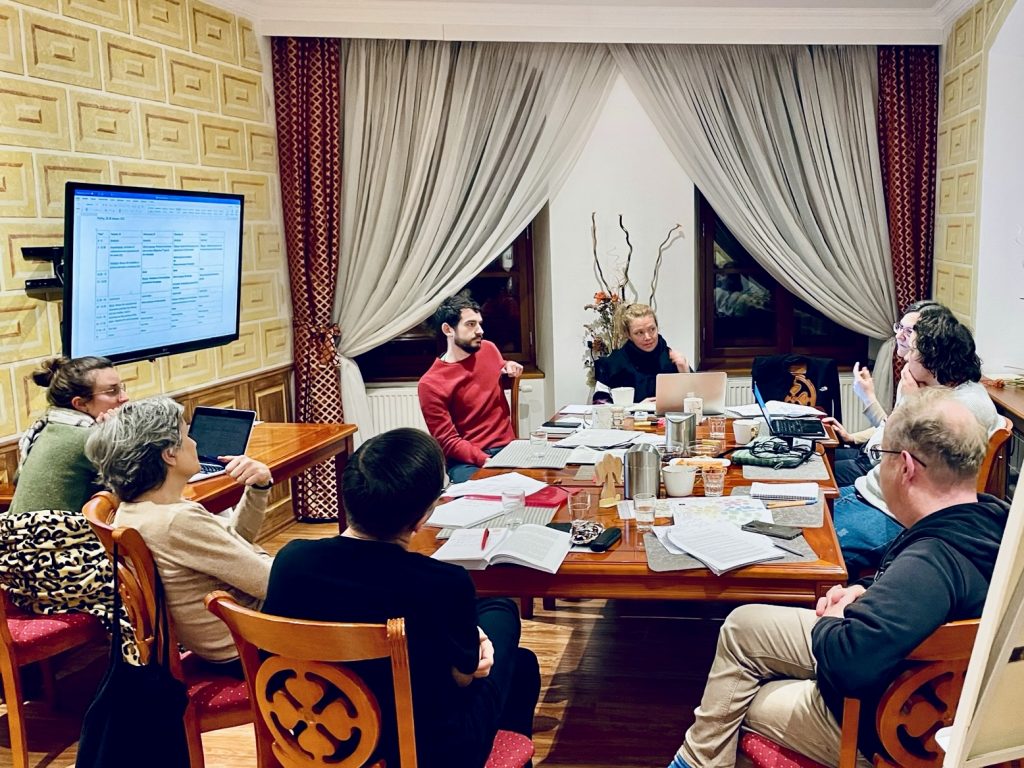Polička panel at the EUGEO and a Polička & Friends meeting in Vienna, Austria, 2025
At the Geographical Societies EUGEO Conference “Geographies of a Changing Europe,” held in Vienna from 8–11 September 2025 by the Austrian Academy of Sciences, we hosted a panel titled “Transformative Worldvisions from the Global East? (Post)socialist Inspirations for Resilience and the Good Life”. We welcomed engaging contributions from Andrei Dörre, Tobias Feltham, Michaela Pixová, and Christina Plank, followed by our presentation of the freshly published Polička paper, “Babushkas and Postcapitalism: Theorising Diverse Economies from the Global East”. The ensuing discussion, focusing on both the shared post|socialist heritage and the differences across countries of the Global East, was highly stimulating – though, as always, all too brief. To extend these conversations, we organised a convivial brunch and networking session after the conference, bringing together like-minded scholars with expertise in participatory action research and/or the Global East. The lively exchange of experiences reminded us once again that contradictions in fieldwork are often the most exciting (and demanding) part of our work as engaged researchers – and that collaboration and support within a collective are invaluable.
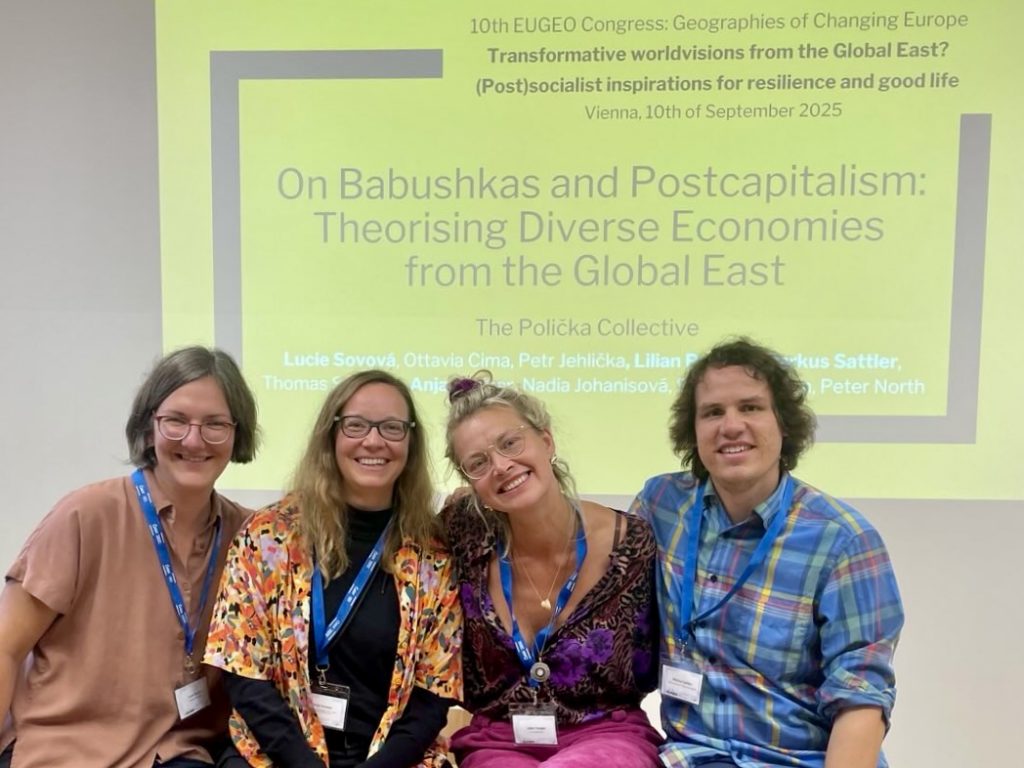
Polička side event at the Kulturelle Landpartie (KLP) in Lübbow, Germany, 2025
In June 2025, we gathered for another outreach event – this time along the former inner-German border by the Elbe River. Under the headline “Collective Action for a Good Life for All – Perspectives on Both Sides of the Elbe”, we met with people from across the region who are engaged in building vibrant, sustainable communities. Our discussion with Adriana Osanu (Bottom-up Plattform Elbe Valley, dschungle bureau, Stadtsalon Safari), Pascal Abel (Bottom Up Valley, University of Braunschweig), Hannes Gerlof (Access to Land, Agronauten, Ackercrowd, platform “im Wandel”), Michael Seelig (Kulturelle Landpartie, Grüne Werkstatt Wendland, Bündnis Elbe Valley), Volker Lahmann (district management Salzwedel), and Annerose Lahmann (retired city planner, Salzwedel) were lively, warm, and full of curiosity. These conversations naturally flowed into a shared paella dinner, generously prepared by our hosts in Lübbow. Despite bridges and ferries, the Elbe still felt like a “Grenzfluss”, with relatively few real connections between communities – particularly between the older generation in the East, young urban in-migrants, and residents of Wendland on the western bank. Our workshop was perhaps a small step toward weaving these connections, fostering partnerships and exchange. From an outsider’s perspective, strengthening collaboration along the Elbe seems well worth the effort: working together across the river can make the most of its uneven yet complementary economic and living opportunities, rich cultural landscapes, and social infrastructures – while investing in the physical and social links that can truly bring both sides closer. Our four-day visit also included an inspiring reflection session with Katherine Gibson from the Community Economies Collective, who joined the event as part of her Senior Fellowship at the LIAS Institute, Leuphana University Lüneburg. Lively bike excursions to various KLP festival events added further color and energy to our stay.
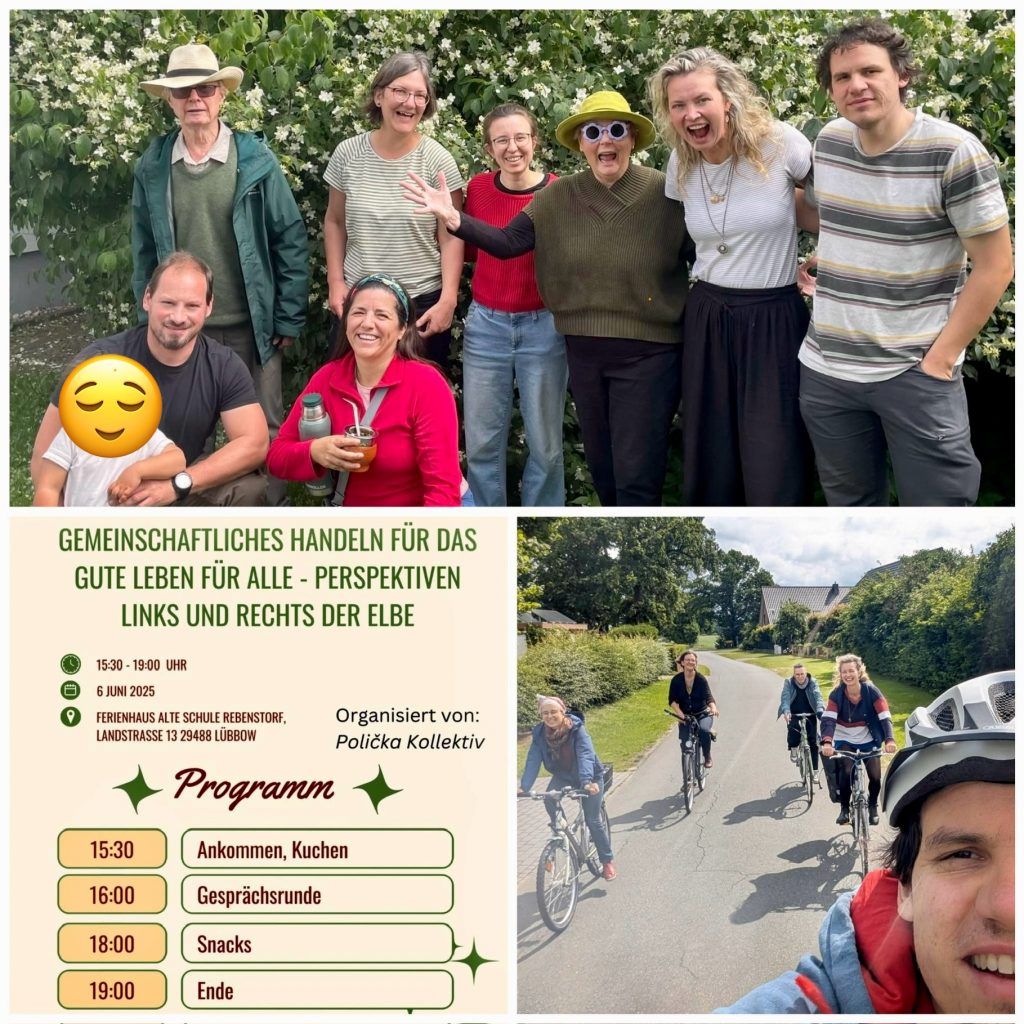
plus guests
Planning meeting in Prague, Czechia, 2025
In March 2025, the Collective held a short retreat in Prague, Czechia, to align research interests for the coming period and to plan future co-design and dissemination activities – including an outreach event in parallel with the Kulturelle Landpartie (KLP) 2025 in Wendland, Germany. The meeting also featured a gathering of Czech-based researchers and activists focusing on degrowth and food self-provisioning, fostering exchange and collaboration across related fields. And as you can see: It wasn’t just talking, but doing!
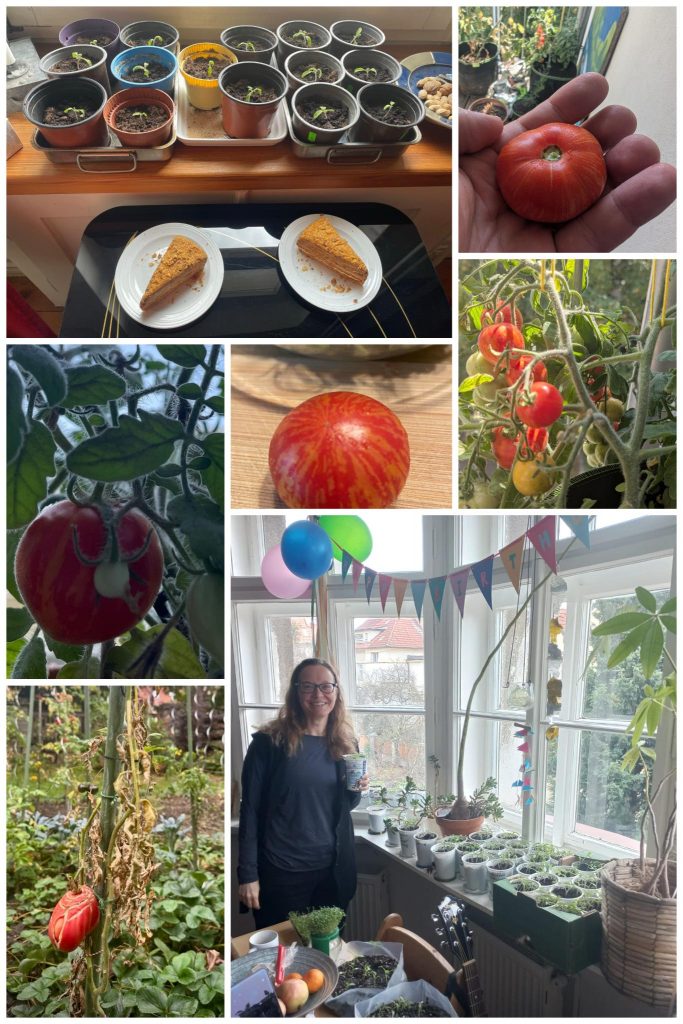
Polička Panel at the LIVIANA 2024 Online Conference of CERN
At LIVIANA 2024, the 5th International Online Conference of the Community Economies Research Network (CERN), we hosted a panel titled “Building (Unlikely) Alliances: Community Economies Old and New” (14 November 2024). The session brought together people engaged in community economies that connect historical and contemporary practices across the Global East. We welcomed inspiring contributions from Bartłomiej Błesznowski, Tereza Virtová, Josef Patočka, Onno Fernig, Ema Šimková, as well as from Polička Collective members Anja Decker and Lilian Pungas – showcasing the rich diversity of research and activism in this field. Several discussions highlighted how class divisions can complicate efforts to build more just futures, especially where organised resistance and alternative initiatives intersect with everyday practices. At the same time, the presentations revealed how community economies are often intertwined with capitalist, modern, and individual-oriented dynamics, challenging clear-cut distinctions between them. Examples such as the collaboration between a food co-operative and a tenants’ movement in Czechia (Virtová & Patočka) or the Gardeners’ Day at the Sputnik dacha cooperative (Pungas) illustrated how identifying shared needs – and fostering connections through arts and culture – can help build bridges across social and ideological divides.
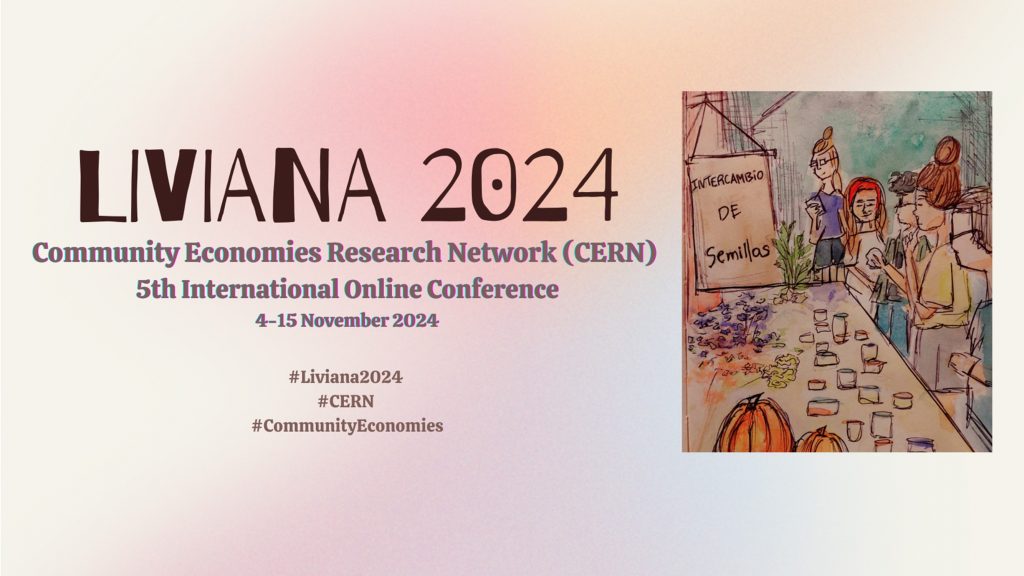
Research planning and outreach events in Heinersdorf, Germany, 2024
From 3 to 5 October 2024, we gathered at Haus des Wandels (HDW) in Heinersdorf, Germany, to plan our collaborative projects and exchange ideas with local activists. On the first evening, we cooked and shared dinner with HDW residents and local people with East German backgrounds who are engaged in political activism or support HDW’s community spaces. Together, we discussed experiences of political work and neighbourhood relations at HDW – touching on themes of feminism, democracy, the arts, and anti-racism – in the unique setting of a small rural village and a building that once formed part of the collective infrastructure of the GDR, now revitalised by a diverse group of in-migrants. Using photo collages, we juxtaposed today’s crisis phenomena with images of public services and infrastructure from the GDR and Estonia. This visual exercise highlighted both the need for change in the present and the potential to learn from past experiences — positive as well as negative. On the second day, we joined elderly local activists from the Denk-mal-Kultur e.V. association and the Praxisforschungsstelle Heinersdorf on a tour of the vacant manor house in the village. Formerly a health centre and children’s home during the GDR era, the manor is now being preserved and gradually restored by the association, with the aim of re-establishing it as a public space. This exchange showed how experiences and knowledge of transformation in Eastern Germany can continue to inspire and inform today’s movements for social change. Shared meals, combined with narrative and visual reflection, created a convivial and open atmosphere that fostered meaningful dialogue. Comparing similar phenomena from different perspectives – for instance, those of newcomers and long-term residents, or from experiences in different countries – proved particularly enriching.
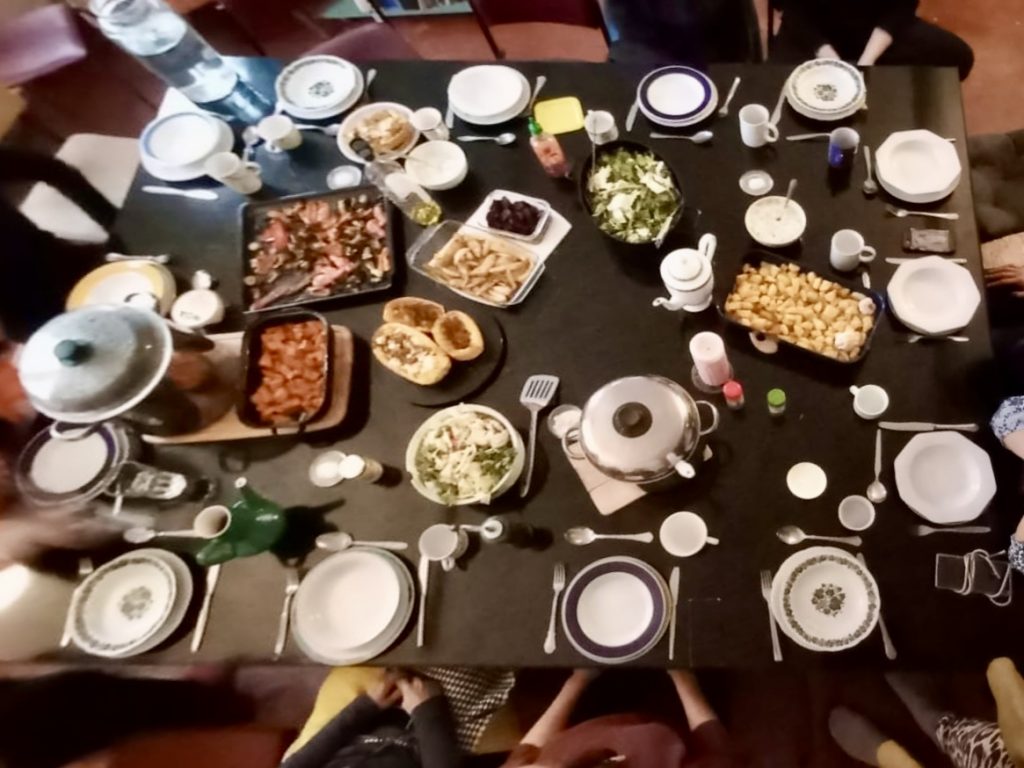
Writing retreat in Leipzig, Germany, 2024
In January 2024, we met in Leipzig to continue developing our articles on degrowth from the East and diverse economies. During the retreat, we also engaged with local food activists to discuss the current dynamics of the alternative food movement in Leipzig and the surrounding region. Together, we explored whether more “quiet” practices – such as food self-provisioning – might also align with the movement’s sustainability goals, leading to a lively and thought-provoking exchange. We chose an informal and convivial format: our discussions unfolded while we cooked and shared delicious Georgian dishes together. In addition, we organised a public film screening at Gleiserei (Eisenbahnstraße), featuring two documentaries from Georgia, followed by a discussion with Magnus Lorenz, director of Shaolin Bus, and Nanuli Burdiladze, a Georgian resident. Peter North, a member of the Collective, also helped popularise debates on diverse economies in both academic and public settings, including a talk at the Orinoco Bookstore and a GlobeLecture at the University of Leipzig. Following the retreat, we synthesised key insights from our previous collaborations in a reflective blog entry on Convivial writing experiences.
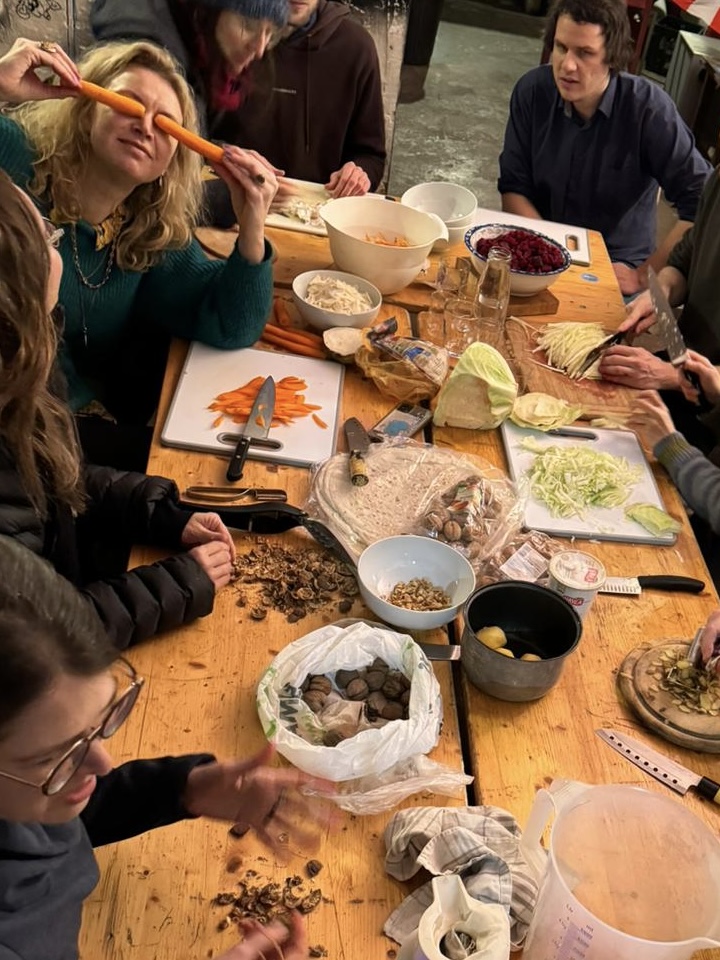
Polička Panels at the Degrowth Conference in Zagreb, Croatia, 2023
At the Degrowth Conference “Planet, People, Care: It Spells Degrowth!” held in Zagreb (29 August – 2 September 2023), the Polička Collective & Friends organised a special session consisting of two panels: “Degrowth from the East I & II.” The panels were hosted by Eva Fraňková, Ottavia Cima, Ondřej Kolínský, Josef Patočka, Lilian Pungas, Markus Sattler, Thomas Smith, and Lucie Sovová, each contributing their own perspectives. The first panel featured academic presentations focusing on theoretical lessons from the East, while the second – an interactive workshop – explored empirical lessons through practical engagements with the position and positionality of Central and Eastern Europe (CEE) in postcapitalist imaginaries. From the lively discussions and reflections that emerged – particularly during the workshop / World Café session – grew the idea to compile our insights into a collective text, later published as “Degrowth from the East: Between Quietness and Contention. Collaborative Learnings from the Degrowth Zagreb Conference”.
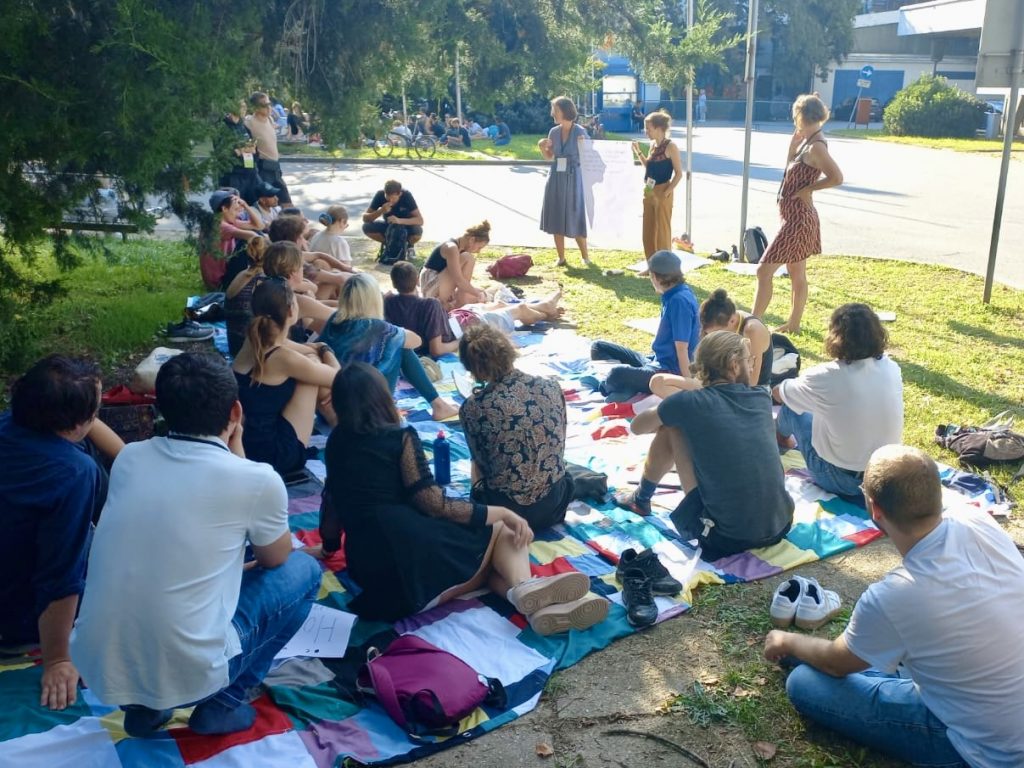
Follow-up writing retreat in Dolni Kounice, Czechia, 2023
Our second meeting took place in an old monastery in Dolní Kounice in the autumn of 2023. The main goal of the retreat was to advance our collective paper “On Babushkas and Postcapitalism”and discuss its preliminary draft. Alongside the intellectually demanding yet deeply rewarding writing sessions and planning for future activities, we also took time to explore the surroundings – hiking to nearby hills and the local synagogue, sampling regional specialities in a traditional wine cellar, and sharing convivial soup-cooking sessions that brought us together around everyday tasks of care and nourishment.
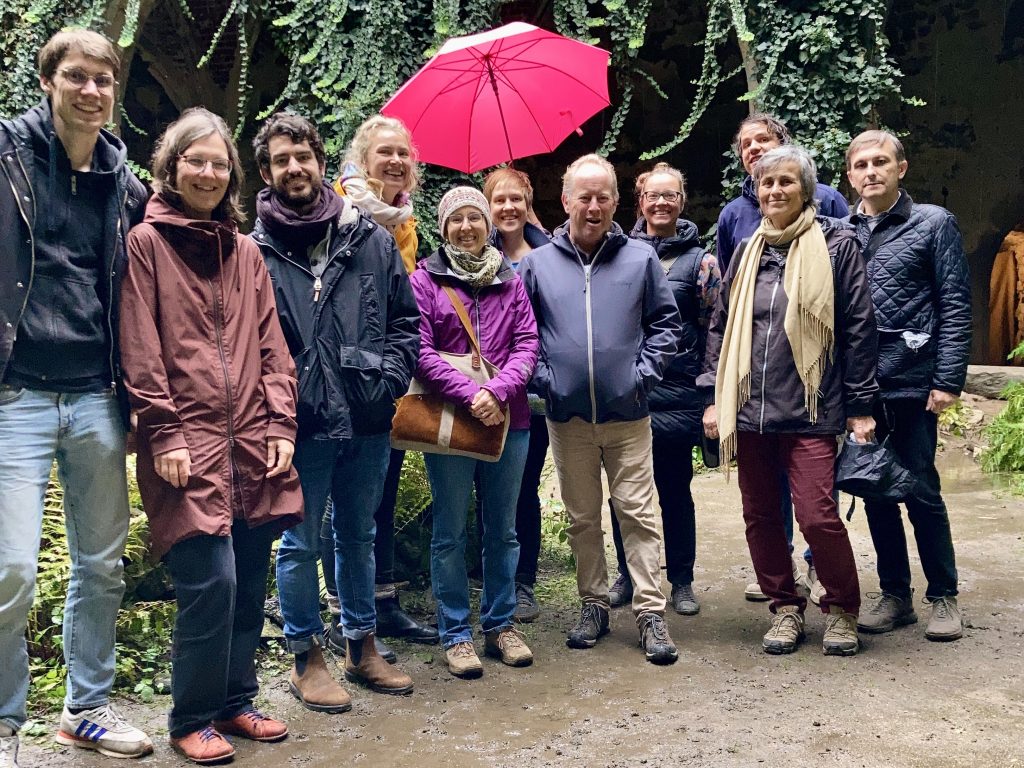
Origins: First writing retreat in Polička, Czechia, January 2023
Our first retreat, held in Polička – a small town in central Czechia – gave the collective its name and marked the beginning of our collaboration. Over several days in January 2023, we brainstormed ideas for a collective paper exploring the intersection between the diverse economies approach and our research across Central and Eastern Europe and the former Soviet Union – a region we later began referring to as the Global East, following Martin Müller. Alongside launching the long-term process of writing our paper “On Babushkas and Postcapitalism”, we also began shaping our own cooperative ways of working: experimenting with facilitation through multiple roles, non-hierarchical and decentralised forms of organising, and balancing intensive work sessions with convivial moments of shared reflection and exchange.
